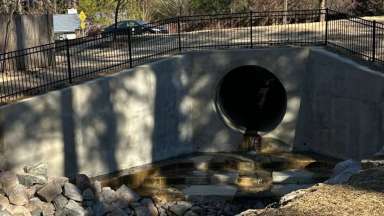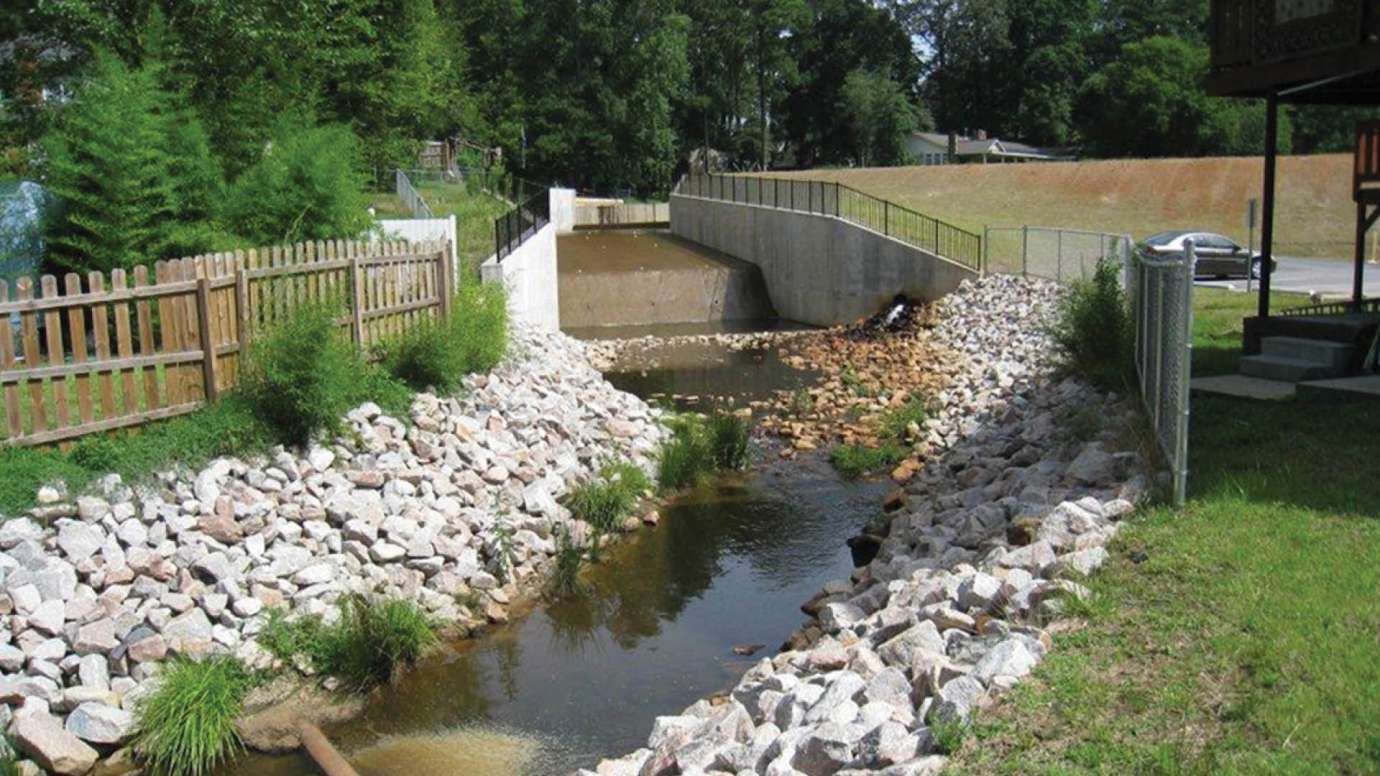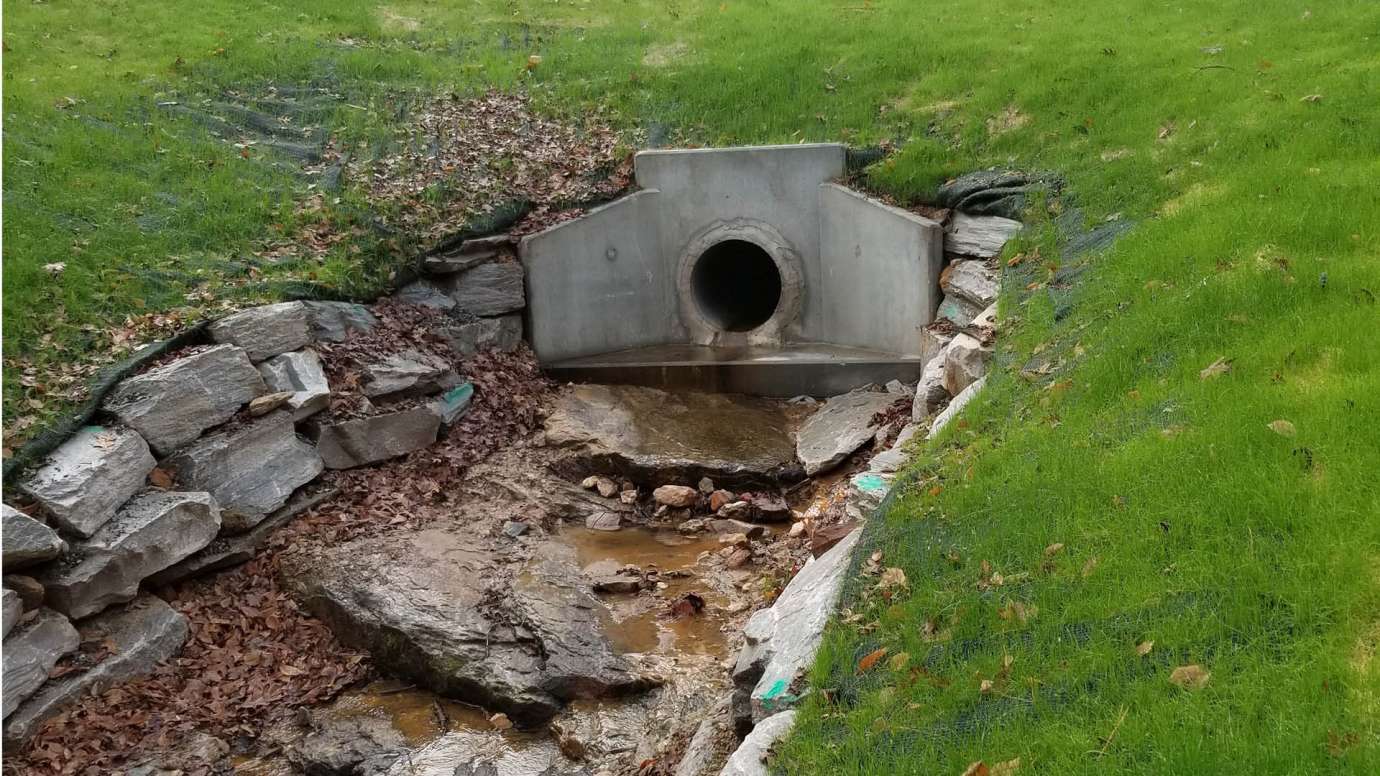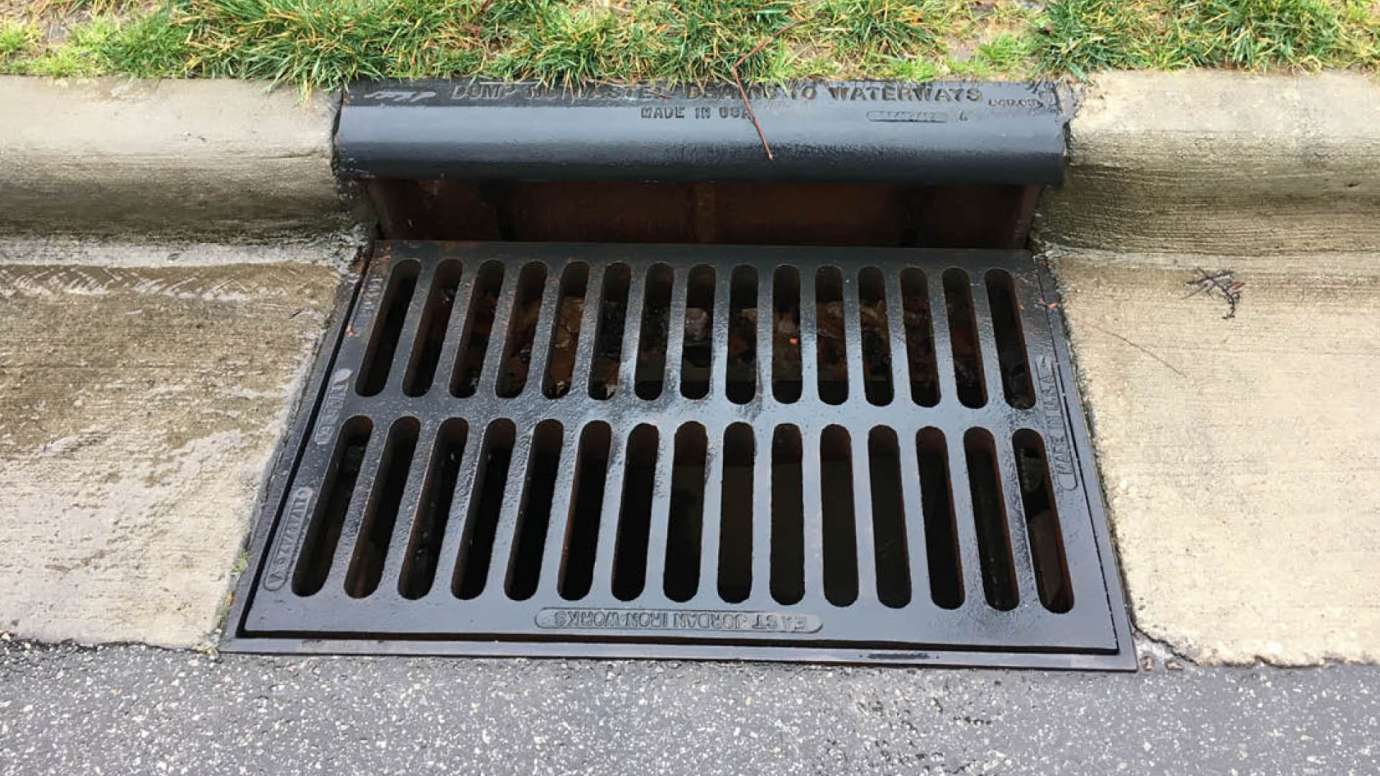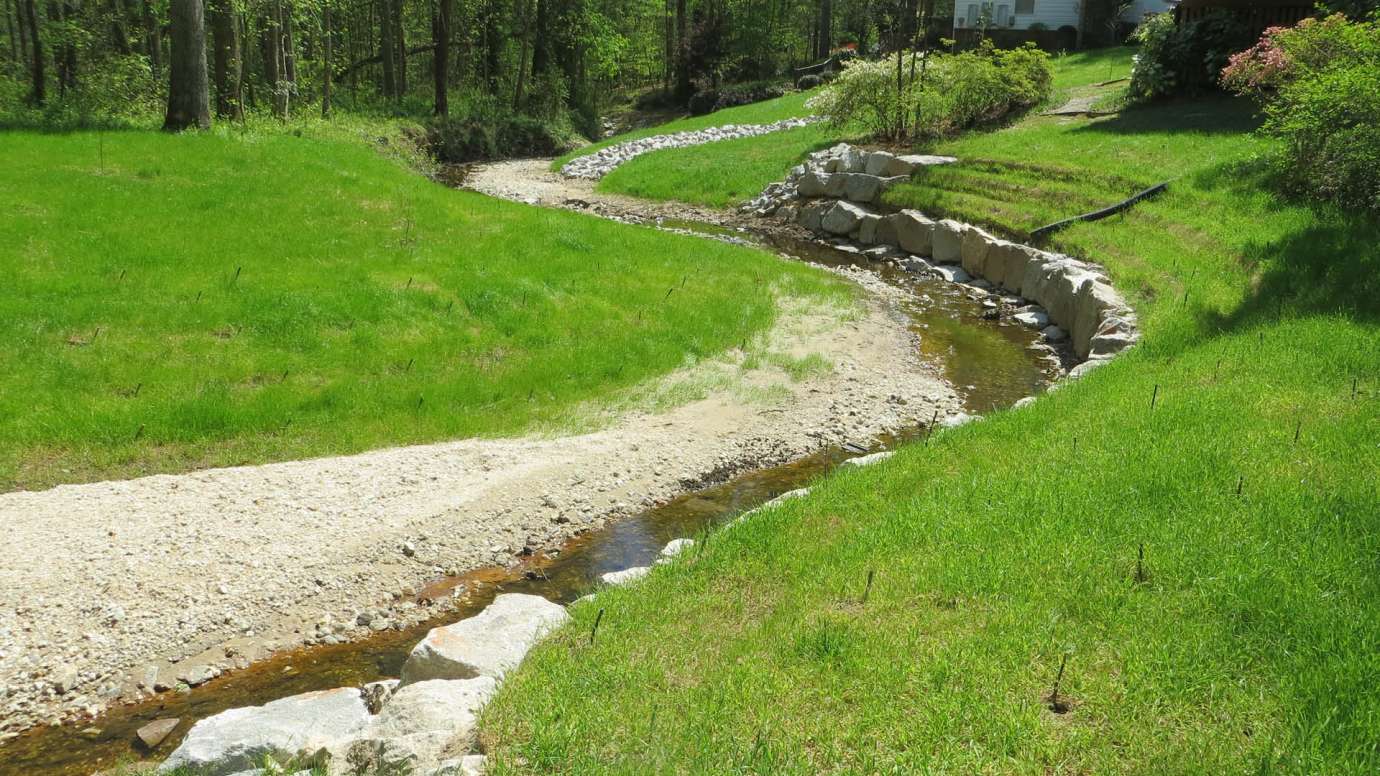Jump To:
The stormwater system is made up of natural and man-made infrastructure that carries stormwater through the city to streams and rivers. Stormwater infrastructure reduces hazardous flooding, preserves water resources, and protects people in Raleigh.
What We Do
We improve and maintain the stormwater system so it carries stormwater safely and correctly. We inspect infrastructure to check the condition and determine repairs or replacement. The stormwater system in Raleigh consists of:
- 600+ miles of City-owned stormwater pipes
- 1,000+ miles of stormwater pipes owned by NCDOT and other private property owners
- 190+ miles of City-owned streams, creeks, ditches, and other open channels
- 980+ miles of streams, creek, ditches, and other open channels owned by private property owners.
What Makes Up the Stormwater System?
Click through the images below to see what makes up the stormwater system in Raleigh.
Dams
We oversee 36 low and high-hazard dams that are on City, public, or private property. Do you have a dam on your property? Learn how to maintain it.
If you are visiting a recreational area that has a dam, please DO NOT go near the dam or spillway structures.
Did you know: All lakes in Raleigh are man-made and have a dam. The dams can be used to store water for mills, agriculture, water supply, hydroelectric energy, flood control, recreation, and aesthetics.
Pipes and Culverts
We improve and construct corrugated metal and concrete pipes, and concrete box culverts that carry stormwater through the system. This infrastructure reduces flooding to homes and streets, and protects watersheds in Raleigh.
Storm Drains
We inspect and maintain more than 26,000 storm drains in the city. Stormwater maintenance crews handle these repairs. They also make sure that storm drains are cleared before a rainstorm.
Waterways
Streams, lakes, and rivers are essential natural assets that benefit the environment and community. We repair and/or restore streams throughout Raleigh to improve their water quality and reduce impacts from flooding.
Stormwater Devices
These devices control and clean stormwater that flows onto a property when it rains. We maintain 75 City-owned devices and inspect more than 2,000 on private property.
Ongoing Survey Work
We're getting data and details on the condition of the stormwater system across Raleigh. This includes collecting information on the type and location of the infrastructure and where water flows when it rains.
Benefits
- Better understand the pipes and drains that carry water to streets and streams when it rains.
- Meet state regulations that require us to take an inventory of the system.
Where We're Working
Zoom in on the map below to see where we're collecting data. Select the three lines on the map (upper right corner) to see what the icons mean.
Projects
- View all stormwater projects.
- View completed stormwater projects.
- View stormwater projects near and currently in construction.
Requirements
To classify a stormwater project in Raleigh, we follow these criteria:
- Location (City street or private property)
- Public safety
- Mandated by state or federal law
- Flooding
- Water quality benefits
- Streambank erosion
Learn more about how we prioritize projects.
Types
Our stormwater projects make streets safer for residents. They also reduce future costs from flooding damages caused by heavy rainfall.
| Types | Description |
|---|---|
| Lakes | Prevents flooding damage to roads and buildings downstream; improves water quality. Projects are on public and private property. |
| Stormwater System | Prevents flooding damages caused by stormwater runoff coming from public streets. We also maintain and repair the system. |
| Streams | Reduced impacts from sediment and other water pollution. These projects are typically on City properties. Work on private property is through the Drainage Assistance Program. |
| Bridges | Work is completed on bridges over creeks when the structure is unsafe to travel on or affecting the stream. |
Approval and Funding
We identify projects each year that are approved by Raleigh City Council. We plan 10 years ahead. Projects in the first year are funded and future projects are funded during the next year's planning process.
